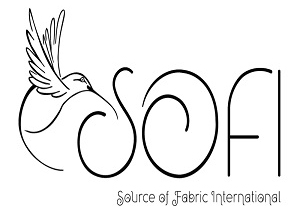Cotton fabrics have long been a staple in the textile industry, prized for their versatility and comfort. As demand for high-quality materials grows, wholesale cotton fabrics emerge as a smart choice for businesses looking to optimize their inventory while catering to diverse customer needs. From fashion designers to home decor enthusiasts, the appeal of cotton lies in its breathability and ease of care.
In today’s market, sourcing fabric wholesale cotton fabrics can provide significant advantages. Not only do they offer cost savings, but they also open doors to a wide range of patterns and colors. Understanding the benefits of purchasing in bulk can empower retailers and crafters alike, ensuring they stay ahead in a competitive landscape. Whether it’s for apparel, quilting, or upholstery, the right wholesale cotton fabric can elevate any project.
Overview Of Wholesale Cotton Fabrics
Wholesale cotton fabrics play a vital role in the textile market. They offer a variety of options that cater to different needs, helping businesses and crafters find the right materials for their projects.
Definition And Characteristics
Cotton fabrics are textiles made from the fibers of the cotton plant. They are known for their softness, breathability, and durability. These fabrics come in various weights, weaves, and finishes, allowing for a wide range of applications, from clothing to home furnishings. Availability in numerous colors and patterns enhances their appeal for custom designs.
Benefits Of Using Cotton Fabrics
- Comfort: Cotton is soft against the skin, making it ideal for clothing.
- Breathability: Cotton fabric allows air circulation, keeping wearers cool.
- Durability: High-quality cotton withstands wear and tear, lasting longer than many synthetic options.
- Versatility: Cotton suits various uses, including fashion, quilting, and home decor.
- Easy Care: Cotton is machine washable and often withstands repeated laundering.
- Eco-friendliness: Cotton is a natural fiber, making it a more sustainable choice than many synthetic alternatives.
Types Of Wholesale Cotton Fabrics
Various types of wholesale cotton fabrics cater to different needs and preferences. Each type offers unique characteristics, making them suitable for various applications.
Poplin
Poplin is a tightly woven cotton fabric known for its smooth texture and crisp finish. It features a lightweight feel, making it ideal for shirts, dresses, and lightweight jackets. Poplin often comes in plain colors and patterns, providing versatility for designers and crafters.
Muslin
Muslin is a lightweight cotton fabric characterized by its loose weave. This fabric is breathable and soft, making it perfect for making mock-ups and patterns. Muslin is often used for sewing projects or as a lining due to its affordability and ease of use. It comes in various weights and can be pre-washed for convenience.
Canvas
Canvas is a durable and heavy cotton fabric, known for its strength and sturdiness. It works well for durable items, such as bags, tents, and outdoor upholstery. Canvas is easy to print on, providing a great surface for custom designs. Its durable nature makes it a preferred choice for both commercial and DIY projects.
Sourcing Wholesale Cotton Fabrics
Sourcing wholesale cotton fabrics involves identifying suppliers who offer quality materials at competitive prices. This step is crucial for businesses and crafters aiming to create high-quality products.
Finding Reliable Suppliers
Finding reliable wholesale suppliers is key to successful sourcing. Several avenues exist for locating trusted sources:
- Online Marketplaces: Websites like Alibaba and Etsy connect buyers with fabric suppliers worldwide.
- Trade Shows: Attending fabric trade shows showcases numerous vendors and allows for direct communication.
- Local Wholesalers: Checking local fabric stores often leads to potential wholesale opportunities.
- Industry Directories: Using directories business lists suppliers specializing in cotton fabrics can simplify the search.
Establishing relationships with suppliers promotes better pricing and support over time.
Evaluating Fabric Quality
Evaluating fabric quality is essential for ensuring customer satisfaction. Several factors contribute to assessing the quality of cotton fabrics:
- Thread Count: Higher thread counts indicate softer and more durable fabrics.
- Weight: The weight of the fabric determines its suitability for various applications. Lightweight cotton works for clothing, while heavier options fit for upholstery.
- Finish: The finish of the fabric affects its texture and usability. Look for well-finished materials free from defects.
- Colorfastness: Testing for colorfastness ensures that the colors withstand washing and sunlight without fading.
Assessing these elements helps in making informed decisions about fabric purchases.
Trends In The Wholesale Cotton Fabric Market
The wholesale cotton fabric market shows various trends influenced by consumer preferences and industry demands.
Eco-Friendly Options
Eco-friendly cotton fabrics gain popularity as consumers seek sustainable choices. Organic cotton, grown without harmful chemicals, appeals to environmentally conscious buyers. Companies that offer certified organic cotton attract attention, supporting eco-friendly practices. Recycled cotton fabrics also enter the market, made from post-consumer materials, providing good quality while reducing waste. Retailers benefit from focusing on sourcing these sustainable options to meet growing demand.
Popular Patterns And Colors
Popular patterns and colors in wholesale cotton fabrics reflect current fashion trends. Floral prints, geometric designs, and solid colors dominate the market, catering to diverse consumer tastes. Bright colors resonate well in seasonal collections, while pastels maintain demand for softer looks. Seasonal themes influence offerings; for example, autumn hues feature rich oranges and deep reds, while spring collections highlight light greens and blooming florals. Retailers that stay updated with these trends can better satisfy customers’ preferences.
Conclusion
Wholesale cotton fabrics offer a wealth of opportunities for businesses and crafters alike. By choosing quality materials in bulk, such as wholesale fabric by the bolt or denim fabric wholesale, they can enhance their product offerings while maximizing cost efficiency. The diverse range of cotton fabrics, including options from A&A wholesale fabric, caters to various applications, ensuring that every project meets specific needs and preferences.
Staying informed about current trends and sourcing from reliable suppliers not only boosts competitiveness but also fosters customer satisfaction. For those looking to buy designer fabric wholesale, selecting high-quality textiles from trusted sources can set their products apart. As the demand for eco-friendly options continues to rise, embracing sustainable practices can further elevate a brand’s appeal. With the right approach, those in the textile industry can thrive in a dynamic market while delivering exceptional quality to their customers.
Frequently Asked Questions
What are cotton fabrics, and why are they popular?
Cotton fabrics are textiles made from the fibers of the cotton plant. They are popular due to their softness, breathability, durability, and versatility, making them ideal for clothing, home decor, and various crafting projects.
What are the advantages of sourcing wholesale cotton fabrics?
Sourcing wholesale cotton fabrics offers cost savings and access to a wide variety of patterns and colors. This benefits both businesses and crafters by allowing them to meet diverse customer needs efficiently.
How can I find reliable suppliers for wholesale cotton fabrics?
To find reliable suppliers, consider checking online marketplaces, attending trade shows, visiting local wholesalers, and using industry directories. Building relationships with suppliers can help you secure better pricing and support.
What types of wholesale cotton fabrics are available?
Common types include poplin (lightweight for shirts and dresses), muslin (soft for mock-ups), and canvas (heavy-duty for bags and outdoor items). Each type has unique characteristics that make it suitable for specific uses.
How can I evaluate the quality of cotton fabrics?
Key factors for assessing cotton fabric quality include thread count, weight, finish, and colorfastness. Evaluating these elements helps ensure customer satisfaction and enhances the overall quality of your products.
Are there current trends in the cotton fabric market?
Yes, there is a growing demand for eco-friendly options like organic and recycled cotton fabrics. Retailers should also pay attention to popular patterns and seasonal colors to keep up with fashion trends and customer preferences.


